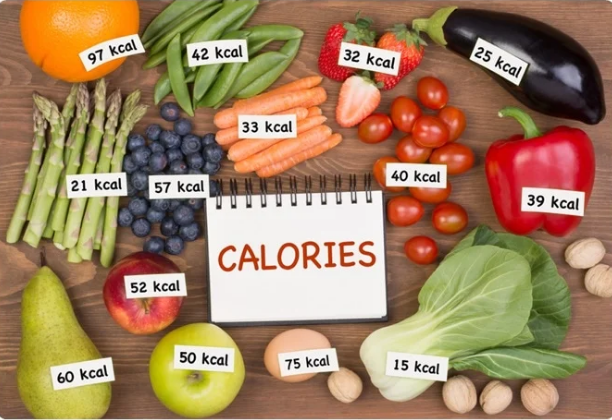Welcome to the weight loss journey. Getting started can be both exciting and terrifying. In today’s blog post, I will present you with informative tips. However, it is crucial for us to understand the role of calories in effective and sustainable weight loss.
In this comprehensive guide, we’ll look at the science behind calorie consumption for weight loss, debunk common myths, and give practical tips for determining the optimal calorie intake for your individual needs. Let’s uncover the secrets to successful weight loss through a balanced and informed approach to calorie consumption.
Understanding Calories and Weight Loss:
Weight loss is a simple equation: calories in versus calories out. To shed pounds, you must create a calorie deficit, meaning you consume fewer calories than your body expends. This deficiency forces your body to tap into its fat stores for energy, leading to rapid weight loss over time.
However, not all calories are created equal. While quantity is important, the quality of the calories you consume plays an important role in your overall health and weight loss success. Opting for whole foods over nutrient-dense, processed, calorie-dense snacks can keep you full and energized while providing essential vitamins, minerals and fiber.
Determine your calorie needs:
Calculating your daily calorie needs is the first step in planning your diet for weight loss. Several factors affect your calorie needs, including age, gender, weight, height, activity level, and metabolism. While online calculators can provide a rough estimate, consulting with a registered dietitian or nutritionist offers personalized guidance based on your unique situation.
Once you determine your baseline calorie needs, you can create a calorie deficit by adjusting your intake and increasing physical activity. However, maintaining a balance is essential to avoid overly restrictive diets, which can lead to nutrient deficiencies, metabolic slowdowns, and unsustainable weight loss.
Balancing macronutrients for optimal results:
While calories are important for weight loss, so is the composition of your diet. Macronutrients, including carbohydrates, proteins and fats, play different roles in fueling your body and supporting overall health.
Protein, in particular, is essential for preserving lean muscle mass, promoting satiety and aiding recovery from exercise. Including lean protein sources like poultry, fish, tofu, beans, and lentils in your diet can help you feel full and satisfied while maintaining muscle mass while losing weight.
Carbohydrates provide energy for daily activities and exercise but should be consumed in moderation, focusing on complex, fiber-rich options such as whole grains, fruits and vegetables. Similarly, healthy fats found in avocados, nuts, seeds and olive oil are essential for hormone production, brain function and nutrient absorption.
Practical tips for success:
Sustained weight loss requires a combination of mindful eating, regular physical activity, and lifestyle changes. Here are some practical tips to help you successfully navigate your weight loss journey:
- Keep a food diary to track your daily intake and identify areas for improvement.
- Prioritize whole, minimally processed foods over highly processed alternatives.
- Practice avoiding overeating and mindless snacking.
- Stay hydrated by drinking plenty of water throughout the day.
- Incorporate regular exercise into your routine, focusing on a combination of cardio and strength training.
- Get enough sleep to support hormonal balance and overall well-being.
- If you struggle with motivation or accountability, seek help from friends, family or a professional.
Finally, the key to successful weight loss lies in effectively understanding and managing your calorie intake. By creating a sustainable calorie deficit, prioritizing nutrient-dense foods, and adopting healthy lifestyle habits, you can achieve your weight loss goals while promoting overall health and wellness. Remember, consistency and patience are key, and small, incremental changes can lead to significant long-term results. Embrace the journey, celebrate your progress, and trust in your ability to achieve the healthy, vibrant life you deserve.
